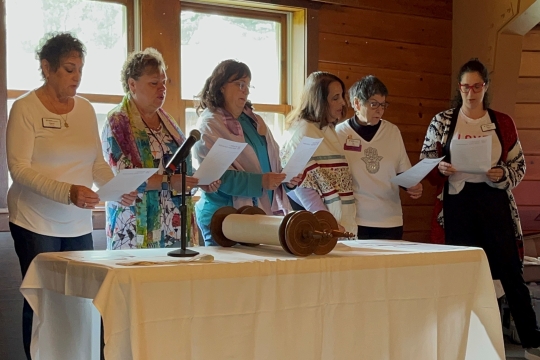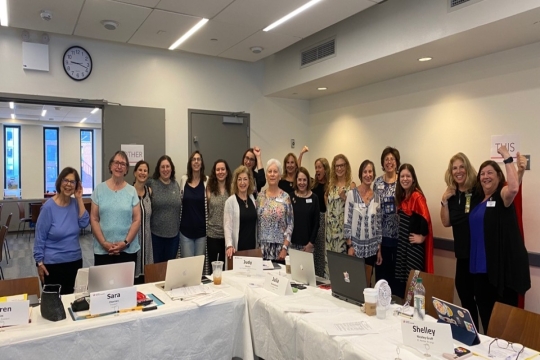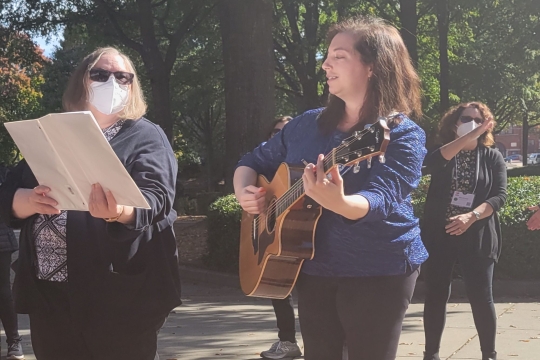
Joseph, one of our more famous Biblical heroes, performs center stage again in Mikeitz, this weekly parashah, as the great dream interpreter brought from jail to listen to the daunting Pharaoh’s dreams and deduce their meaning. I dare say that Joseph was not necessarily a marvelous interpreter. However, he was a fantastic listener and keen observer of his surroundings who had become cleverly adept at using every possible situation to better himself and his status in his world.
First, let’s look at listening. Joseph’s brothers talk; his father Jacob talks; Potiphar and his wife talk; the jailers talk; Pharaoh’s cupbearer talks; and even Joseph talks. But mostly, Joseph carefully listens, learns, thinks, and plans, perhaps even schemes. Joseph is what today we call an active listener. He understands that we have one mouth and two ears for a purpose – talk less, smile more – as Aaron Burr sang to Alexander Hamilton!
In this parashah, we see that Joseph worked out an intricate plan to make sure his brothers would return to Egypt. He wanted to learn about the brothers who previously threw him in a pit and sold him, and he carefully observed that they had not recognized him as Pharaoh’s head honcho. Now he had the upper hand. He schemed to learn about his father and others back at home. Talk less, smile more. If we can follow this advice, we, too, can learn a lot and make plans in our lives rather than forge ahead into situations recklessly.
Too often, when we are talking with someone, even someone we love and know well, do we only ‘half-listen’? Our minds are preparing answers or responses rather than listening fully. Additionally, we women are usually multitasking; we fail to pay sincere close attention to one thing at a time. Who can pay close attention to details when you are doing five things at once? We have perfected multitasking to the detriment of active listening. For example, how many times have you been on a Zoom meeting and answering emails simultaneously? I’m guilty. I bet you are as well. We can do better. We all can be attentive, active listeners.
Listening is an art that can be honed. We need to take a breath and listen with intention. And if we listen carefully, we also can observe. Look at someone’s face; look at their body language. Get the total picture of someone, and the outcome of any conversation will be different from what it might have been if you were not 100% tuned into the other person.
We 21st century Reform Jews often relegate Torah portions to simple Bible stories we learned as children. For example, we hear ‘Joseph’ and associate dreams and his becoming the important dude of Egypt at the Pharaoh’s right hand. It is time to seek more from Torah. Time to see what Torah has to say to us as adults. Reread portions like Mikeitz and be surprised. Gain new insight, such as how listening and observing can make a difference in your life.
Shabbat shalom!
Related Posts

Parashat Yom Rishon shel Rosh HaShanah

Cultivating a Culture of Accountability and Belonging


